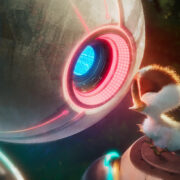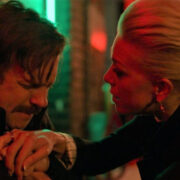ANGEL’S EGG: A Charlatan’s Musings
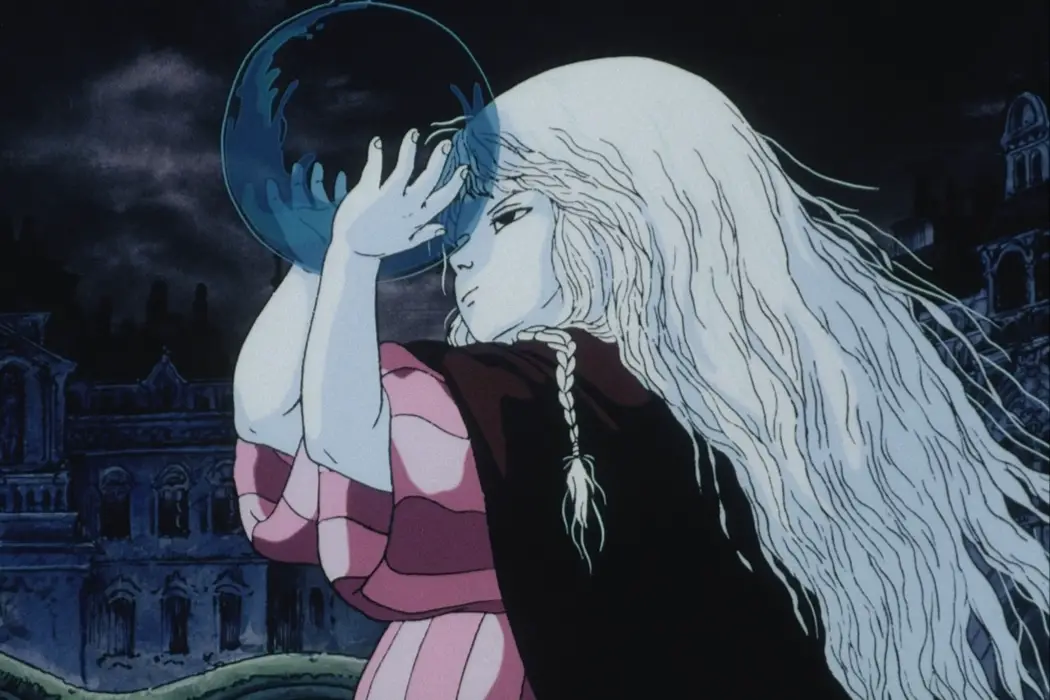
lover of film
For the uninitiated, the discovery of Angel’s Egg is an anomalous experience. It feels faintly sinful, like gazing at a lost manuscript of apocrypha; like heresy. The reel turns seamlessly in mind as I remember my first viewings of the film. On the first occasion, it filtered through a fog of somnolence, functioning better as a sedative than entertainment. I would put it aside and forget the film for some time, but through the whole period could feel its faint impression following me, eventually chasing me back to where it all started.
There’s very little that separates the critic from the charlatan. As distant as those two may seem their ethos is scarily similar: the image (illusion?) of coherence from chaos. It’s films like Angel’s Egg that make the critic feel like a charlatan, aimlessly looking for patterns in the entrails. The premise is simple: a boy (Jinpachi Nezu) and a girl (Mako Hyôdô) journeying through a desolate post-apocalyptic hellscape. What it’s about however is more nebulous. The director Mamoru Oshii describes it as a “crisis of faith” type film, which is readily apparent by the pervasive religious imagery: crosses, arks, fishes, the egg. Yet what does that entail? What exactly swims in the crystal ball?
Cracking the Egg
The hardest obstacle I encountered during my journey to revelation, was penetrating the story’s distinctive passivity. If like me prior to my viewing, anime to you renders fast-moving hand-drawn images, intricate and hyper-saturated, then prepare for those conventions to collapse in on themselves, or at the least drastically change. The film crawls. It opts to linger on its detailed contemplative images. Its ambiance evokes a certain type of synesthesia where every component of the film plays off one another. The sparse sepulchral soundtrack emphasizes the desolate atmosphere which is reflected in the dour red-grey-blue color palette and so forth. The dialogue is minimal mainly reserved for pivotal scenes and moments, otherwise letting the images speak for themselves. Once everything seeps in, and in synchronicity with the motion of the film, then aspects slowly begin to fall into place, intentions start to crystallize.
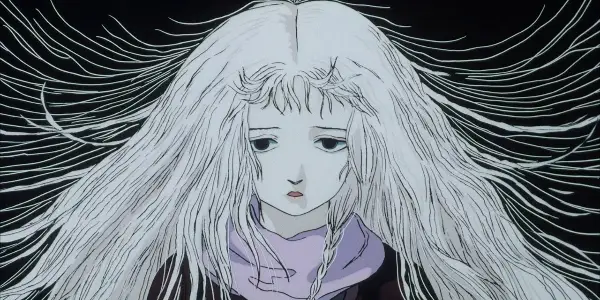
It becomes apparent that, although on the same path, the motives of both characters occupy opposite extremes of the spectrum. The man is on a final-hour journey searching for something to remedy his nihilism, figuratively and literally carrying his cross on a path he hopes points towards his Damascus. The girl is waiting for her faith to be rewarded, counting down the days till whatever beauty or monstrosity gestating in her egg hatches. It’s this intersection of faith and faithlessness from which the main conflict of the film stems.
Oshii’s Magic
The viewer is subtly coerced into choosing a side, the intricacies of which are fully explored by Oshii. The experience is vicarious as every frame exudes emotion, almost palpable from the other side of the screen. You feel that as you are on the path towards your revelation about the film, Oshii is on a path towards his own personal revelation about the concepts the film deals with. And though you may not agree with that ultimate revelation, you can’t dispute the thread of causality that leads him there.
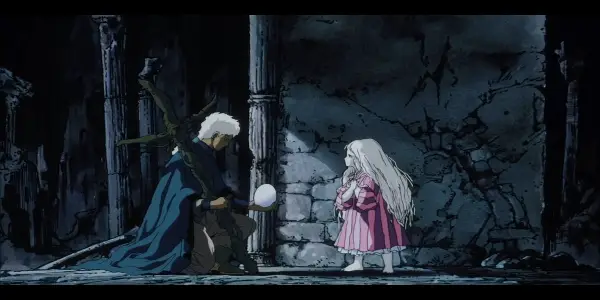
Angel’s Egg mirrors many of the great religious films by assuming a more exploratory approach to its subject matter instead of flaunting a clearly defined thesis from the beginning. And like those films, the subject matter shares close proximity to the creator. But where Angel’s Egg finds its identity is in the world Oshii constructs in order to tell that story. At heart, Oshii is a science fiction director. He feels most comfortable in the genre, his most renowned films (Ghost In The Shell, Patlabor) being anime-science fiction staples. His decision to place this story within this world not only provides for a unique viewing experience but also works to disprove the fallacy of complex stories being exclusive to live-action. A flawed notion that is unfortunately still widely pervasive.
Forever in its Depths
When the film faded to black, I gazed at my puzzled expression duplicated in the dark glass. It took some time for my brow to unfurl, in which a gust of passion swept over me. In the proceeding days, Angel’s Egg incited a sort of obsession within me. I would ceaselessly scrape the internet searching for what others got from the film, and hoping for answers to some of my own questions. It’s experiences like these that not only make you cherish the film but want to share it with others. My words are futile when it comes to encapsulating just how profound Angel’s Egg can be. So I leave it to you to watch it and explore the reaches this film will inevitably take you down.
Have you seen Angel’s Egg? What do you think about the film? Let us know in the comments below!
Watch Angel’s Egg
Does content like this matter to you?
Become a Member and support film journalism. Unlock access to all of Film Inquiry`s great articles. Join a community of like-minded readers who are passionate about cinema - get access to our private members Network, give back to independent filmmakers, and more.



